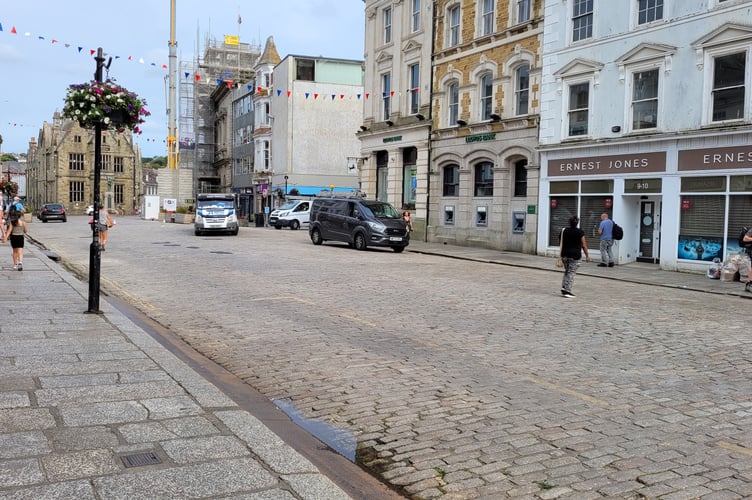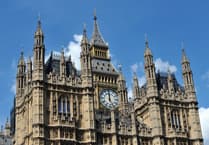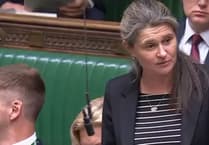The controversial wooden planters in Boscawen Street have disappeared, having been taken away early on Monday morning.
The traffic restrictions introduced as part of the experimental scheme remain in place to reduce traffic and pollution levels in the city centre.
These restrict through-traffic from travelling through Lower Lemon Street, Boscawen Street, St Nicholas Street, King Street and Princes Street. Access is retained for emergency vehicles, buses, taxis, cycles and blue badge holders, and for loading and unloading.
The wooden flower beds were installed in July 2021 on a 12-month trial as part of Truro’s Healthy Streets scheme, using an Experimental Traffic Regulation Order funded by Cornwall Council. With many incorporating seating, the planters were positioned to narrow the broad cobbled street, slow traffic flow and create more room for pedestrians with cleaner air.
In a joint statement, Truro City Council, Truro Bid and Cornwall Council said: “Following discussions between Cornwall Council, partners and stakeholders earlier this year on how the Healthy Streets scheme should evolve, it was agreed to remove the planters, temporarily installed at key places throughout Boscawen Street.
“A number of key events are planned for the city during the summer, and the removal of the planters will create space for activities to take place in Boscawen Street.
“The first of these events is Children’s Day in Lemon Quay on July 1. The works to remove the planters are taking place this week to enable the Farmers’ Market, usually based on Lemon Quay, to temporarily move to Boscawen Street for this Saturday.”
Cllr Steven Webb presided over the introduction of the scheme two years ago as city mayor leading the Healthy Streets group.
He said he was “filled with pride” with what they achieved by “reimagining Boscawen Street as a place to enjoy rather than just a transit route”, adding: “Our experiment was more than just bold; it was brave.”
He continued: “The removal of the planters has been on the cards for a while – they were always temporary, never permanent, which is why we chose the kind we did. The delay has been organisational, and while people have been enjoying them, we have left them there until it was convenient to move them.
“The planters served so many sectors of society and were enjoyed in so many different ways. At least one store noticed it was enjoying more footfall thanks to people sitting for a while and noticing it was actually there.
“But Truro is a commercial and financial hub, and a valuable route for buses, taxis and disabled parking. People want to see it used in a healthy way, but it has to be done in a strategic way that incorporates our findings.
“We have a mandate now to look at the whole of Truro in the short, medium and long-term – not Boscawen Street in isolation, but also Duke Street, King Street, the bottom of Lemon Street. We will sit down and discuss it with the heritage team and work out what it looks like, then go to public consultation.”

Cllr Bert Biscoe recently made a public call for the removal of the planters. “I’m delighted – Boscawen Street has been blemished by these planters,” he said.
“It is one of the beauties of Cornwall that we should be shouting about, with an incredible range of architecture from the 18th century to the late 20th. It is a prosperous commercial town, and many people live and work here and enjoy the benefits of that prosperity.
“Back in the 1960s, the A39 and A390 ran through Boscawen Street. It was congested. Look at the quality of traffic now, and it is safe and attractive, but busy with people and vehicles.”
Cllr Biscoe attributed the increasing bus traffic in Boscawen Street to the relocation of Marks and Spencer and the bus station to Lemon Quay in the early 2000s. “It sealed the fate of Boscawen Street,” he said.
“But one of the things that brings people to Truro is the bus, especially with the government scheme to reduce rural bus fares. If Truro is to be a successful and environmentally positive city, we have to think about how to get people in and out, and make sure they are comfortable.”





Comments
This article has no comments yet. Be the first to leave a comment.